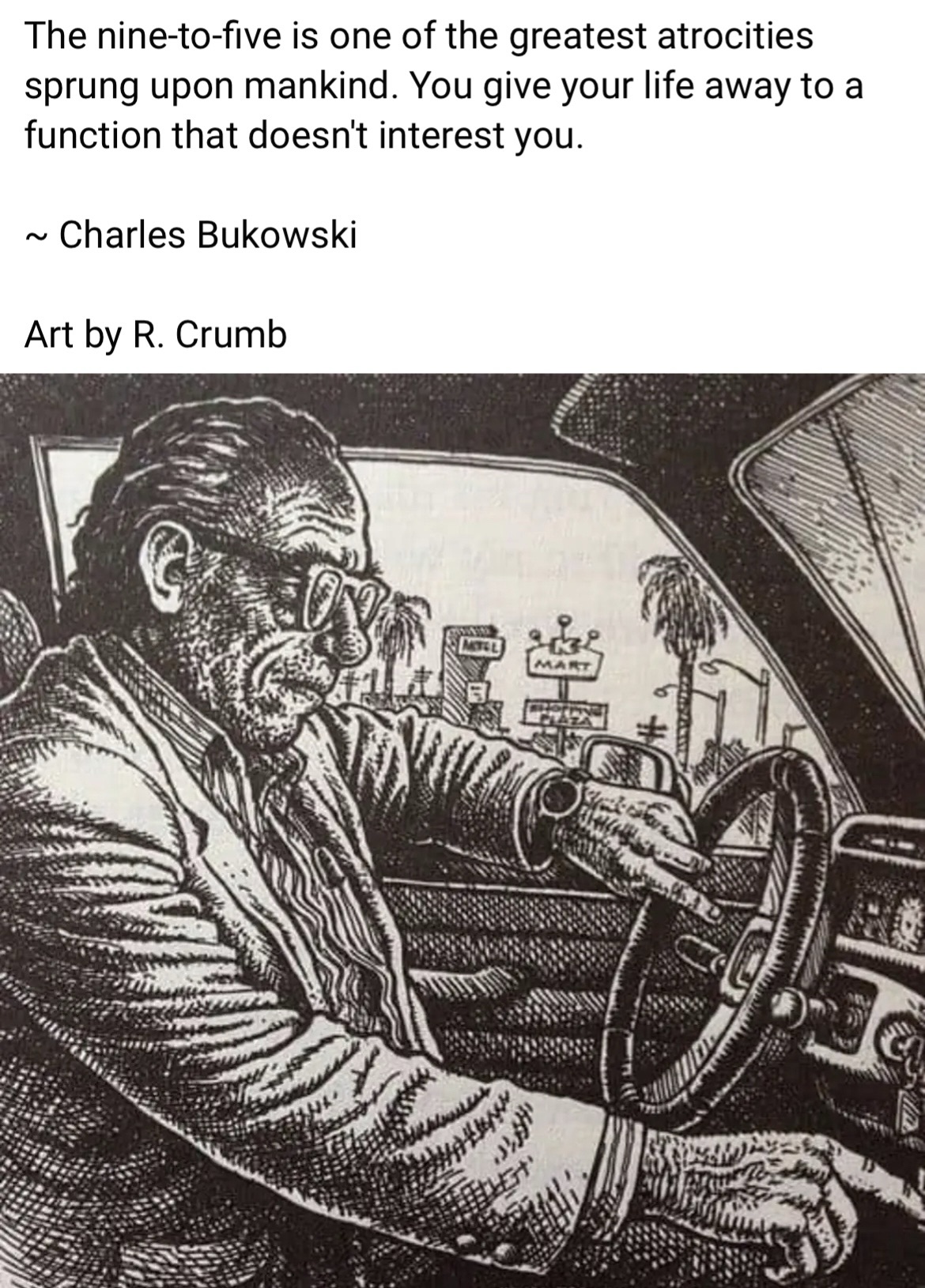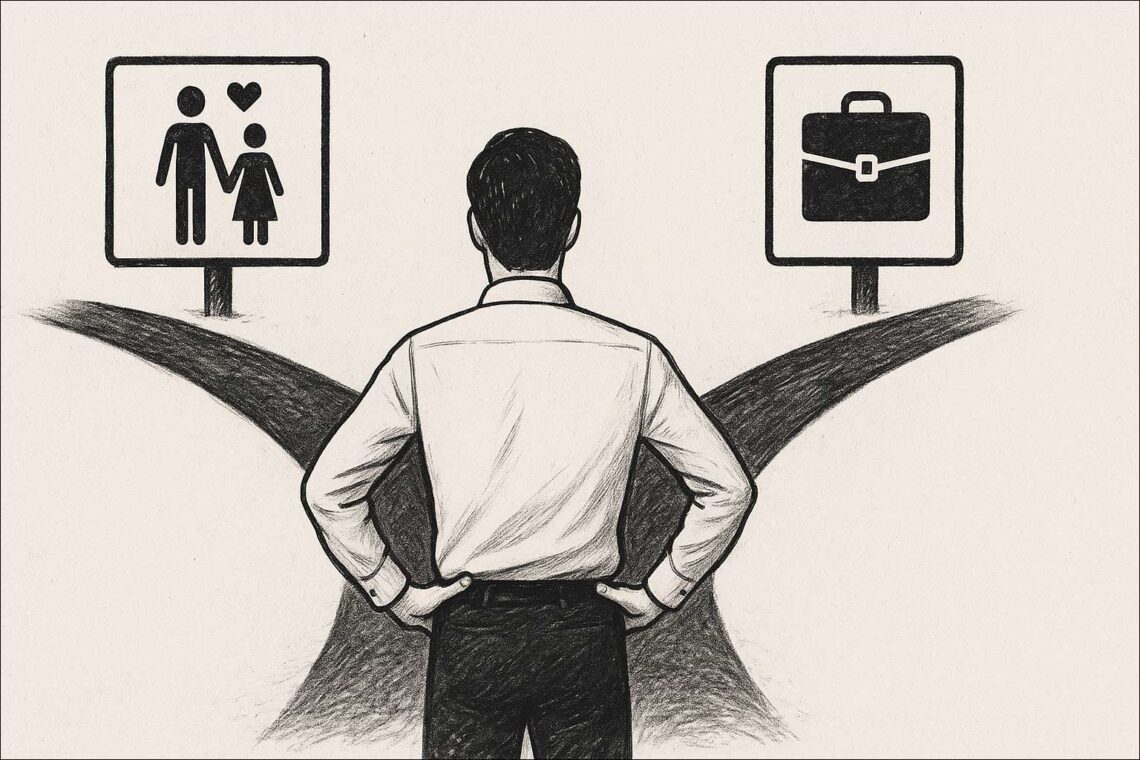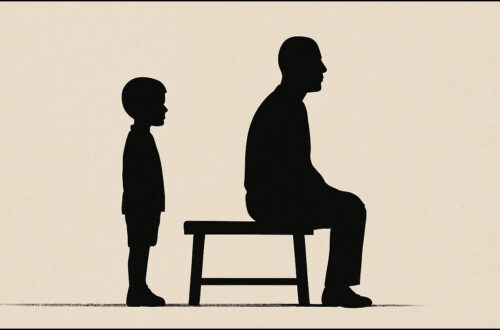What is more important? Having a career which is a good fit? Valuable work that pays well and which you enjoy? An engaging job? Professional success? Wealth and power? Or a happy marriage? A spouse with whom you get along? Fulfillment at home? Children and grandchildren? Hobbies and friends?
It can seem like a choice: A strong and successful work life? Or a strong and successful life outside work?
Of course a person would like to have both.
But if you had to choose: A successful career? Or a happy marriage? Investment in your work life? Or in yourself and your personal relationships?
It would be a hard choice. Both are important. You live with your spouse and share a home and family. Having a strong social support system is important. Ideally a person wants to live happily embedded in life-giving relationships and activities outside of work – hobbies and passion projects unrelated to what you do for a living. On the other hand, you spend some 40 or more hours a week at work – and those hours add up over the years. Do you want to spend most of your life at work? But making money is important. Paying for the necessities of life for you and your family is important. One must weigh professional obligations versus everything else. The reality is most of us do spend most of our lives at work. The workplace competes for one’s limited time and attention with everything else: sometimes (often?) they can be mutually exclusive. You do not have to look far in history to encounter some titan of the business world or standout scientist who focused monomaniacally on their work and as a consequence had little else besides it. That is no good. One wants some balance.
I often tell my overachieving older daughter that she should worry a bit less about having perfect grades in high school. Instead I suggest she should focus more on having her eyes fully open to all the things she is learning about, and thinking about where she might fit into the adult world. “Do you feel called to one vocation or another? What interests you in the world? How can you be of service? How can you make money? In what way can you leave your mark?” I don’t want her to be another college graduate with a strong academic record but no real way of translating it into a job. I have seen that often enough.
Because a person should not want just a job, in my opinion. She should want a vocation. The cliché says that if you get a job doing what you like to do, you will never work a day in your life. Fair enough. But that can be a tall order. I recognize that most people do a job day after day and don’t think too much about it. Work is work. They do it to get paid. If work wasn’t mostly tiring and tedious they would not call it “work.”
I also recognize that there is no promised land where a person does a job they enjoy 100% of the time. If you enjoy 80% of your job, you are doing well compared to most. Any job will have its unpleasant aspects. Similarly, if you get along with your spouse 80% of the time, you are doing much better than the average. There is no adult life where you get it just as you like all the time. That is reality. And often most workers sort of stumbled into a job more than they carefully chose it.
But still. A person should aim to develop a career path where they can contribute to the world and make income in a fashion that suits them. What you are curious about and interested in outside of work should become, at least to some extent, the focus of your job. Work should be an extension of your inner world. Whatever gifts God gave you, they should come out at work. If a person does a job just for the money – if they don’t really care about what they do from 9-to-5 – then I suspect they won’t do it well. Your career should be a natural expression of who you are. And if it isn’t, are you in the right job? You should not settle for just a job. You should build a career. So I tell my daughters. So I urge my students.
I know some will say that such a view is an expression of my “privilege.” Plenty of poor people have little to no power to build a career. They just get what they can get to survive. Obviously some people have more scope to choose and construct their work life than others. But everyone has some agency to maneuver in the world of work, especially if they are smart about it.
That brings me back to a quote from Charles Bukowski I came across today:

Is this true? Working a 9-5 job takes away the best moments of your life and is an “atrocity”?
It was not true for me. And the idea vaguely offends me. (“Speak for yourself, Charles!”) But I suspect many (most?) would agree with Bukowski.
My career as a teacher has been immensely rewarding, in terms of teaching content which fascinates me. I taught William Shakespeare’s Romeo and Juliet to high schoolers for twenty years, and I loved almost every minute of it. I would do it for free, if I did not need money to live. On the other hand, I increasingly came to see the public school system as a disaster. We should almost burn it to the ground and start anew. Nevertheless, the job teaching humanities suited me. I loved teaching and learning, at least most of the time, even as I learned to despise the “education system.” I was 75% happy at work, and that is much better than most.
True, my career took a huge chunk of my life away. But it was a worthwhile investment overall. I did important work. I invested whatever knowledge and care I could into young people over several decades. I did not sit on the sidelines of life and watch the world pass me by. I participated. They paid me. I will receive a solid, if not spectacular, pension. But there is the cost. I did spend many of my best hours over some 32 years at work. I worked “nine-to-five” like Bukowski claims, and that adds up to a hell of a lot of time – time I would never get back. A large part of my adult life was spent on the job. But I was not drafted into this endeavor. I volunteered. No regrets.
I would prefer to have acted as I did rather than be a professional smart-ass like Charles Bukowski, drinking my days away in an alcoholic’s hovel in East Hollywood while smirking in disdain at the “normie” working world around him. I enjoy Bukowski’s wry poetry, but I would hardly model my life after his.
I have read that younger people today are pushing back against the idea of an all-consuming career. The Covid-19 pandemic, and the cultural shocks it caused, supposedly fueled this movement. Young adults supposedly would prefer to invest less in their professional training, making less money in the future and working fewer hours. This makes sense. The idea of working so much that it makes it difficult to attend to the self and the family is a real phenomenon. Employers would be happy to take everything you can give them, and even more. They might pay you well for it. But at what cost? ( “Opportunity cost”?) On the other hand, you might spend all your time satisfying yourself and the interests of your interior world, so that the external world mostly ignores you. Nobody pays you much money. You struggle to pay for food and housing. And if you don’t focus and build a career in youth, you might end up spending decades underemployed. Or you might have to settle for work which is below what you otherwise could have done. Who wants to be a phlebotomist if you could become a doctor? Would you rather be a paralegal or a lawyer? Is it better to spend your days doing rote and semi-mindless work without too much pressure and stress? Or better to perform demanding and difficult work which pays much better, engages you fully, but also leaves you exhausted and anxious?
It is a tricky mix – this “work-life balance.” I have struggled with it. Most have. It is not easy.
To excel in your family and personal life? Or to excel at your job? In his poem “The Choice” WB Yeats seems to suggest they are mutually exclusive:
The intellect of man is forced to choose
perfection of the life, or of the work,
And if it take the second must refuse
A heavenly mansion, raging in the dark.
When all that story’s finished, what’s the news?
In luck or out the toil has left its mark:
That old perplexity an empty purse,
Or the day’s vanity, the night’s remorse.




